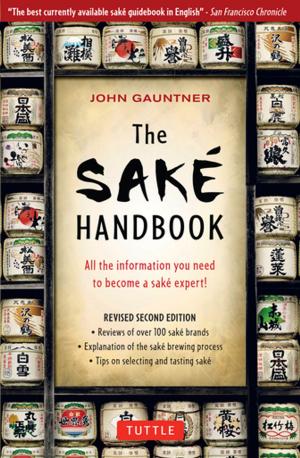Winning in a Crisis
When the Shit Hits the Fan
Nonfiction, Reference & Language, Reference, Guides & Handbooks, Travel| Author: | Sandor Horvath | ISBN: | 6610000169092 |
| Publisher: | Sandor Horvath | Publication: | April 18, 2019 |
| Imprint: | Sandor Horvath | Language: | English |
| Author: | Sandor Horvath |
| ISBN: | 6610000169092 |
| Publisher: | Sandor Horvath |
| Publication: | April 18, 2019 |
| Imprint: | Sandor Horvath |
| Language: | English |
Have you ever been down in your life? Deep down to the bottom, so deep that it was not easy to stand up and move on? When your last thought was is this the end, when the movie of your life started to roll back into your mind. A kind of feeling of helplessness coupled with severe physical pain. A state of mind such as when a boxer is hit so hard, he is still standing, but barely conscious, slowly his eyes are darkening before him, he stumbles, but he is still standing, with hands raised still ready for a fight, have you ever had that feeling? What does the boxer think in this state of mind? Whether he can still win the match, or maybe he can still pull off a win somehow or at least hang on until he hears the bell? If he could hold on until the end it would be due to his preparedness and strength! In such a situation, he can't be a winner! Or can he?
This is similar to how we may react in an unexpected crisis. By not being aware of the danger signs, or not noticing them, we can be placed into a sudden and unpredictable situation. Such as running into an armed person threatening and demanding our valuables, a random shooter in the street, a man in the street stabbing people with a knife, a suicide bomber, a major accident, or a natural disaster with mass casualties. At this point, if we do not have the experience and knowledge, or at least imagined what we should do in these situations, then like the boxer, or even worse we can find ourselves knocked out and on the floor before, the “bell rings”.
How well are we prepared to deal foreseeable and unforeseeable dangers? Do we know what to do when an unexpected event occurs? Can we recognize and manage the security risks realistically? Are we taking measures to reduce and eliminate the risks of our own safety during an incident or accident? What can we do - how much "Reaction Time" is available to us to do something during an unexpected and serious incident. "When the shit hits the fan”? This book is about how to deal with these types of situations and how to help to cope with all the above.
Have you ever been down in your life? Deep down to the bottom, so deep that it was not easy to stand up and move on? When your last thought was is this the end, when the movie of your life started to roll back into your mind. A kind of feeling of helplessness coupled with severe physical pain. A state of mind such as when a boxer is hit so hard, he is still standing, but barely conscious, slowly his eyes are darkening before him, he stumbles, but he is still standing, with hands raised still ready for a fight, have you ever had that feeling? What does the boxer think in this state of mind? Whether he can still win the match, or maybe he can still pull off a win somehow or at least hang on until he hears the bell? If he could hold on until the end it would be due to his preparedness and strength! In such a situation, he can't be a winner! Or can he?
This is similar to how we may react in an unexpected crisis. By not being aware of the danger signs, or not noticing them, we can be placed into a sudden and unpredictable situation. Such as running into an armed person threatening and demanding our valuables, a random shooter in the street, a man in the street stabbing people with a knife, a suicide bomber, a major accident, or a natural disaster with mass casualties. At this point, if we do not have the experience and knowledge, or at least imagined what we should do in these situations, then like the boxer, or even worse we can find ourselves knocked out and on the floor before, the “bell rings”.
How well are we prepared to deal foreseeable and unforeseeable dangers? Do we know what to do when an unexpected event occurs? Can we recognize and manage the security risks realistically? Are we taking measures to reduce and eliminate the risks of our own safety during an incident or accident? What can we do - how much "Reaction Time" is available to us to do something during an unexpected and serious incident. "When the shit hits the fan”? This book is about how to deal with these types of situations and how to help to cope with all the above.















